Overview
Work with Elders? This program is for you.
Not only are people living longer today, they are remaining in better health than in past generations. Yet myths and stereotypes about seniors are more common than facts and knowledge. The University of Vermont’s Certificate in Gerontology provides a multi-disciplinary perspective on aging, with information firmly grounded in current science.
Students will learn:
- Foundational knowledge of biological, psychological, and sociological aging
- The direct practice and ethical issues common to working with elders
- The effectiveness of social service programs, public policies, resources, and settings designed to support elders
Students who complete the certificate will gain specialized knowledge and skills that prepare them for entry-level, elder-related career fields or advanced gerontology studies. Graduates will know how to participate more effectively in their aging processes and that of their elderly family members and communities. These skills can also drive impactful change in age-related institutional/policy-level endeavors.
Most courses in the Certificate are offered on-campus, with some online courses. Please refer to the Curriculum section to view course learning formats.
What sets UVM apart
Learn from experts in medicine, social work, and aging.
Gain knowledge from faculty in the UVM Larner College of Medicine, College of Education and Social Services, and College of Nursing.
Most courses are conveniently offered online.
Start the program at any time—courses are available year-round
Admissions
We designed this 15-credit Certificate program for three types of students:
- Healthcare professionals who want to work with elderly populations or who wish to earn an academic credential in Gerontology
- Individuals seeking entry-level positions in the health and social service fields and work with elders in a variety of settings
- Adults interested in better understanding and preparing for the aging of their loved ones and themselves
Among the highlights
- Three required courses (9 credits) and two elective courses (6 credits) relevant to your area of interest – a growing number of courses are available online
- Access to faculty experts from UVM’s College of Education and Social Services, College of Nursing & Health Sciences, and Larner College of Medicine
- Interdisciplinary courses are open to working professionals and current students
Getting Started
Start the program at any time—courses are available year-round
How to Apply
- Application Form: Complete the online application form. Click the Apply Now link on this page. Be prepared to provide:
- Professional/educational history
- Personal Statement of 250 words or fewer describing your interest in the Gerontology Program
If you have any questions about the application process feel free to contact us at (802) 656-2085 or by email at Learn@uvm.edu.
Curriculum
The Certificate in Gerontology is a 5-course, 15-credit program. It includes 3 required courses and 2 elective courses. Please note, entry-level students are required to take HDF 2991 (Internship). All courses are 3 credits unless otherwise noted.
Students begin the certificate program by enrolling in SOC 1320/HDF 1200: Aging – Change and Adaptation.
Required Courses (9 Credits)
SOC 1320: Aging: Change and Adaptation or HDF 1200: Aging: Change and Adaptation
Required introductory course for the Gerontology Certificate. Individual and social meanings of aging and old age; physical, physiological, psychological, and sociological changes accompanying aging; individual, family, community, and societal adaptations to aging. This is a cross-listed course; students may enroll in either version for the certificate. Offered in the fall.
HLTH 2000: Biology of Aging (Online) OR HDF 3210: Psychology of Aging
HLTH 2000: Human aging examined emphasizing biological and non-pathological physiological changes and their effects on the functioning of elders. Prerequisites: BIOL 1155, ANPS 1190 and ANPS 1200, or Instructor permission. Offered online in Fall and Spring semesters.
HDF 2991: Internship
Contact the Program Director, Prof. Jackie Weinstock (jsweinst@uvm.edu) to discuss possible placements and timing for this course; this requirement may be waived for CDE students with extensive experience working with and/or for seniors. Pre-requisites: 9 credits towards the Gerontology Certificate, including HDF/SOC 1320, HLTH 2000 or HDF 3210, and one elective course. Offered every semester as an independent study.
OR
HDF 3210: This course provides students with a comprehensive overview of psychological aspects of aging as broadly conceptualized. Students will gain core knowledge and understanding of both normative and non-normative biological, psychological, and social age-related changes in late adulthood. Attention will also be paid to institutional and societal factors that affect late adulthood. In addition to learning about these aspects of late adulthood, key lessons and facilitative practices for supporting positive aging will be explored. A guiding question throughout the course will be: What does it mean to age positively, and how do we, as social service professionals, support positive aging? Offered once every two years.
Elective Courses (6 Credits)
Students who have prior experience working with elders take two electives instead of the internship. Students who enroll in the internship take one elective.
ANTH 2181: Aging in Cross-Cultural Perspective
Aging from an anthropological perspective. Topics include exploration of biological and cultural aspects of human aging across the adult life-cycle in a variety of cultural groups. Prerequisite: ANTH 1100 or SOC 1320. Offered approximately once every two years.
HDF 3210: Psychology of Aging
This course provides students with a comprehensive overview of the psychological aspects of aging as broadly conceptualized. Students will gain core knowledge and understanding of both normative and non-normative biological, psychological, and social age-related changes in late adulthood. Attention will also be paid to institutional and societal factors that affect late adulthood. In addition to learning about these aspects of late adulthood, key lessons and facilitative practices for supporting positive aging will be explored. A guiding question throughout the course will be: What does it mean to age positively, and how do we, as social service professionals, support positive aging? Offered approximately once every two years.
HLTH 2000: Biology of Aging (Online)
Human aging is examined emphasizing biological and non-pathological physiological changes and their effects on the functioning of elders. Prerequisites: BIOL 1155, ANPS 1190 and ANPS 1200, or Instructor permission. Cross-listed with: HDF 2520: Psychology of Aging. Offered online in Fall and Spring semesters.
NH 2200: Health Care Ethics (Online)
A study of ethical principles and applications used to help resolve dilemmas in health care delivery. Introduction to ethical decision-making models used in the practice of modern health care. Offered in Spring semesters.
NFS 2143: Nutrition in the Life Cycle (Summer, Online)
Nutritional needs of people throughout the life cycle. Physiological and environmental factors which affect nutritional status. Designed for Nutrition majors. Prerequisite: NFS 1043. Offered in Fall semesters, and online in Summer semesters.
SOC 2320: Sociology of Death & Dying
Comparative examination of socio-cultural adaptations to mortality with special attention to family, medical, legal, religious, and economic responses to fatal illness and death in contemporary society. Prerequisite: Three hours of Sociology. Typically offered in the Fall Semester.
*An approved aging related course in another relevant program (e.g., PRNU 2121: Introduction to Gerontology, available to select majors in CNHS) may fulfill one elective course requirement.
Human Development & Fam Sci: Aging:Change & Adaptation(HDF 1200 A)Quick Course ReviewQuick View
CRN95304Credits3InstructorsJackie Weinstock- DatesDays of the WeekTimes
- to Mon Wed to
Human Development & Fam Sci: Psychology of Aging(HDF 3210 A)Quick Course ReviewQuick View
CRN95306Credits3InstructorsJackie Weinstock- DatesDays of the WeekTimes
- to Thu to
Health: Biology of Aging (online)(HLTH 2000 OL1)Quick Course ReviewQuick View
CRN92359Credits3InstructorsSuzanne Murdock- DatesDays of the WeekTimes
- to N/ASee Notes
Nutrition and Food Sciences: Nutrition in the Life Cycle(NFS 2143 A)Quick Course ReviewQuick View
Only 3 Seats available, register soon!
CRN94160Credits3InstructorsKelsey Rose- DatesDays of the WeekTimes
- to Tue Thu to
Nursing & Health Sciences: Health Care Ethics(NH 2200 A)Quick Course ReviewQuick View
CRN90535Credits3InstructorsTara BurnhamElise Tarbi- DatesDays of the WeekTimes
- to Mon Wed to
Nursing & Health Sciences: Health Care Ethics (online)(NH 2200 OL1)Quick Course ReviewQuick View
This section is full – join waitlist
CRN92496Credits3InstructorsMelanie Keiffer- DatesDays of the WeekTimes
- to N/ASee Notes
Sociology: Aging: Change & Adaptation(SOC 1320 A)Quick Course ReviewQuick View
CRN95707Credits3InstructorsJackie Weinstock- DatesDays of the WeekTimes
- to Mon Wed to
Health: Biology of Aging (online)(HLTH 2000 OL1)Quick Course ReviewQuick View
This section is closed
CRN10711Credits3InstructorsSuzanne Murdock- DatesDays of the WeekTimes
- to N/ASee Notes
Nursing & Health Sciences: Health Care Ethics(NH 2200 A)Quick Course ReviewQuick View
This section is closed
CRN10454Credits3InstructorsTara Burnham- DatesDays of the WeekTimes
- to Tue Thu to
Nursing & Health Sciences: Health Care Ethics (online)(NH 2200 OL1)Quick Course ReviewQuick View
This section is closed
CRN13968Credits3InstructorsMelanie Keiffer- DatesDays of the WeekTimes
- to N/ASee Notes
Example Sequence of Courses
Students Taking Two Courses Per Year:
Year 1: (1) HDF/SOC 1320; (2) Elective Course 1
Year 2: (3) HLTH 2000 or HDF 3210 Spring; (4) Elective Course 2 (possibly the other of HLTH 2000 or HDF 3210)
Year 3: (4) HDF 2991 Internship
Students Taking One Course Per Year:
Year 1: HDF/SOC 1320
Year 2: HLTH 2000 or HDF 3210
Year 3: Elective Course 1 (may be the other of HLTH 2000 or HDF 3210)
Year 4: HDF 2991 Internship or Elective Course 2
Year 5: HDF 2991 Internship or Elective Course 2
Instructors
-
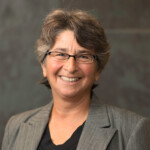 More Info
More InfoJacqueline S. Weinstock (Program Director), PhD
Associate Professor, Human Development and Family Science Program
-
 More Info
More InfoJason Garbarino, DNP, RN-BC, CNL
Clinical Assistant Professor, Dept. of Nursing, College of Nursing and Health Sciences
-
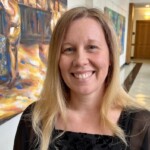 More Info
More InfoKelly Melekis
Associate Professor and MSW Coordinator, Department of Social Work
-
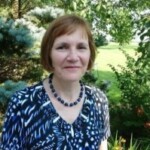 More Info
More InfoJanet Nunziata, M.S.
Associate Director for Education at the Center on Aging
-
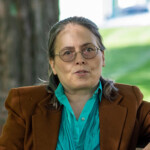 More Info
More InfoJeanne Shea Ph.D.
Chair, Department of Anthropology
- Health
The End of Life Doula Movement
Doulas have traditionally supported women during childbirth, but recently there has been a surge of interest in learning how to support people at the end of life as well.
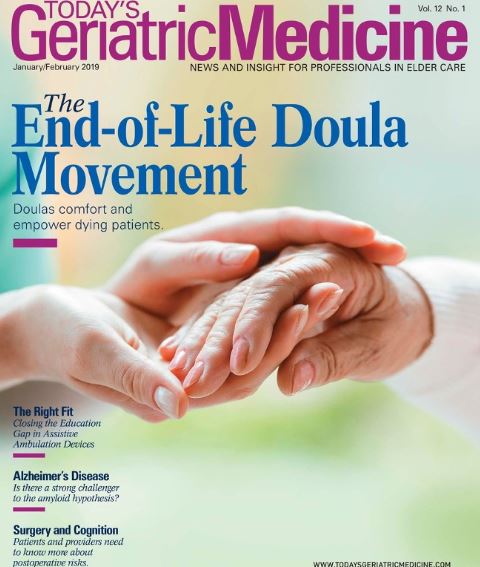
- Health
When a Loved One is Dying, is Forgiveness Necessary? Perspective from an End-of-Life Doula.
Feelings of grief and loss are often profound at the end of life—both for the dying and their loved ones. But what about forgiveness and finding inner peace? It’s more complicated.

FAQ
Students begin the certificate program by enrolling in SOC/HDF 1320: Aging – Change and Adaptation. An example course sequence would be:
Students Taking Two Courses Per Year:
Year 1: (1) HDF/SOC 1320 Fall; (2) HLTH 2000 or HDF3210
Year 2: (3) Elective Course (potentially the other of HLTH 2000 or HDF 3210)
Year 3: (4) HDF 2991 Internship; (5) Elective Course 2
The Certificate in Gerontology is a 15-credit program, with 5 courses: 3 required courses and 2 elective courses. All courses are 3 credits unless otherwise noted.
Yes. You can apply by completing the online application form. Click the ‘Apply Now’ button at the top of this page or follow this link. Be prepared to provide:
- Professional/educational history
- Personal Statement of 250 words or fewer describing your interest in the Gerontology Program
If you have any questions about the application process feel free to contact us at (802) 656-2085 or by email at Learn@uvm.edu.
For information about Professional and Continuing Education tuition and financial aid, please visit Student Financial Services. Summer tuition is offered at a discounted rate and can be found here.
Learn about options for discounts, grants, loans, scholarships, and more on our tuition and financial aid page.
The University cannot issue immigration documents for entry to the US for purposes of enrolling in credit courses as a non-degree student, thus you will not be able to complete this program.
Certificate in Gerontology courses are available online and on-campus; however, to complete all the required courses students will need to enroll in some on-campus courses in Burlington, Vermont.
Please submit this completion form after you have received your final grades for the program. Once your request has been reviewed and successful completion of the program has been confirmed, a certificate of completion will be emailed to you.
Advising and Student Support
You have the goal; we’ll help you achieve it
We are dedicated to helping you access UVM. It is our role to get to know your experience and goals, assist you in choosing courses, guide you through registration, and serve as your resource throughout your time at UVM.
Curious if your past college credits apply at UVM? Want to understand where a program will take you after completion? Looking for resources for financial aid, tutors, or UVM policies? We’re here to help.


